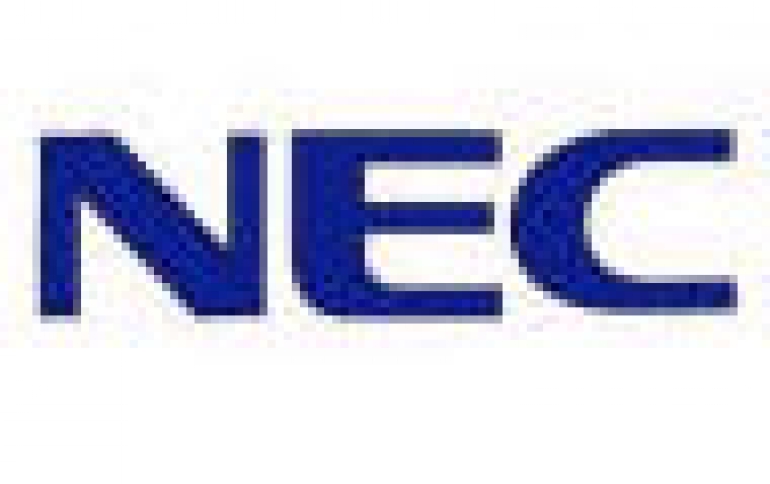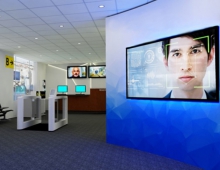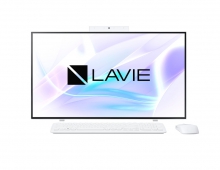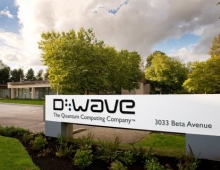
New Laptop Without Hard disk by NEC
NEC Japan has developed a laptop computer targeted at corporate users that doesn't include a hard-disk drive; flash ROM stores both OS and application software.
The device has been developed as a replacement for existing thin-client systems and combines both high data-security with the ability to be used anywhere, said Hitoshi Onodera, a spokesman for the Tokyo company.
Conventional laptop computers can work anywhere but represent a potential security threat should they be lost or stolen. Thin-client systems get around this by working off a corporate server, however they require a network connection to work properly and such a connection is not always available, said Onodera.
The NEC laptop attempts to combine the strengths of both systems while avoiding the weaknesses, he said.
The operating system and application software is all stored locally in flash ROM so the machine can function in the absence of a network. Flash ROM is the type of memory typically used to store a PC's BIOS or the firmware in electronics devices and allows limited reprogramming.
Local storage is provided in the computer's RAM, which is cleared when the machine is switched off thus removing any potential security risk from data theft but also requiring a back-up before the computer is switched off. This can be done with a central server or, should a network not be available, to a USB memory device, Onodera said.
From the outside, the PC Parafield looks like a standard B5-size laptop computer and its specifications are fairly standard, except for the absence of a hard-disk drive.
The machine is based on an Intel Pentium M processor running at 1.73GHz and runs on the Windows XP Professional operating system. It has 3GB of ROM space for the operating system and other software and 512M bytes of main memory. The screen is an XGA resolution (1024 pixels by 768 pixels) 12.1-inch TFT (thin film transistor) LCD (liquid crystal display). It also has a PC Card slot, Ethernet socket and USB2.0 port.
The computer is available immediately in Japan for ?448,000 (US$3,742). NEC said this works out to be cheaper on a per-user basis than a thin-client system because the PC Parafield doesn't require a company to deploy a comprehensive network access system or central server.
At present, there are no plans to sell it overseas.
For more information visit http://www.nec.co.jp (Japanese).
Conventional laptop computers can work anywhere but represent a potential security threat should they be lost or stolen. Thin-client systems get around this by working off a corporate server, however they require a network connection to work properly and such a connection is not always available, said Onodera.
The NEC laptop attempts to combine the strengths of both systems while avoiding the weaknesses, he said.
The operating system and application software is all stored locally in flash ROM so the machine can function in the absence of a network. Flash ROM is the type of memory typically used to store a PC's BIOS or the firmware in electronics devices and allows limited reprogramming.
Local storage is provided in the computer's RAM, which is cleared when the machine is switched off thus removing any potential security risk from data theft but also requiring a back-up before the computer is switched off. This can be done with a central server or, should a network not be available, to a USB memory device, Onodera said.
From the outside, the PC Parafield looks like a standard B5-size laptop computer and its specifications are fairly standard, except for the absence of a hard-disk drive.
The machine is based on an Intel Pentium M processor running at 1.73GHz and runs on the Windows XP Professional operating system. It has 3GB of ROM space for the operating system and other software and 512M bytes of main memory. The screen is an XGA resolution (1024 pixels by 768 pixels) 12.1-inch TFT (thin film transistor) LCD (liquid crystal display). It also has a PC Card slot, Ethernet socket and USB2.0 port.
The computer is available immediately in Japan for ?448,000 (US$3,742). NEC said this works out to be cheaper on a per-user basis than a thin-client system because the PC Parafield doesn't require a company to deploy a comprehensive network access system or central server.
At present, there are no plans to sell it overseas.
For more information visit http://www.nec.co.jp (Japanese).





















